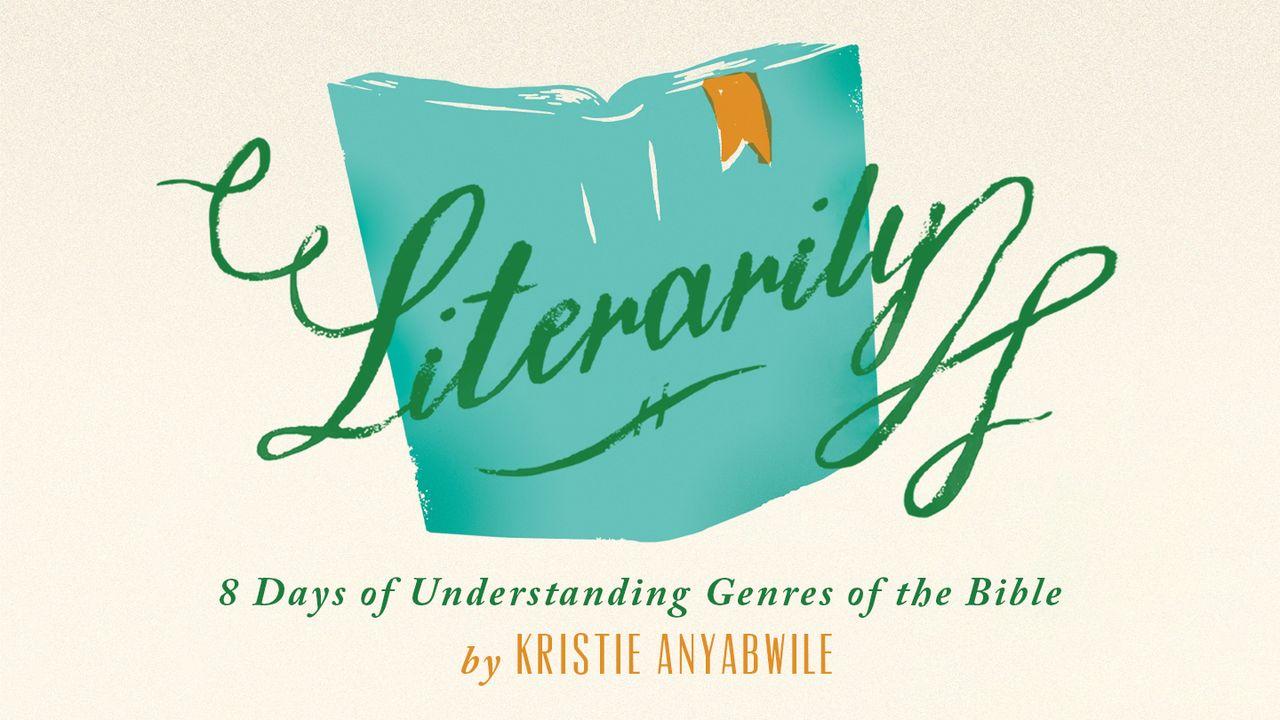Literarily: 8 Days of Understanding Genres of the Bible by Kristie Anyabwile预览

Prophecy
Scripture - Lamentations 3
Read today's passage of scripture before continuing to read this devotion.
Find the type(s) of oracle(s) in this chapter. examples of metaphor and personification. How does the parallelism in each strophe intensify the imagery? What is God’s primary message to His people? How does this passage compare or contrast with the life and message of Jesus? What does this passage prompt you to believe or change?
Prophecy is the inspired communication of God’s Word through a human agent. The prophets were God’s spokespersons, whom He called to communicate specific messages to His people. Those prophetic messages included a proclamation of God’s love for and faithfulness toward His people, details of their rebellion, an opportunity for repentance with accompanying blessings, and a warning of judgment if they continued in sin. When considering the prophetic books as a genre, we often divide them into two categories: the major prophets and the minor prophets. Major prophets are those that make up the larger prophetic books that cover large spans of Israel’s history—Isaiah, Jeremiah, Lamentations, Ezekiel, and Daniel. Minor prophets are the smaller books with a narrower focus—Hosea, Joel, Amos, Obadiah, Jonah, Micah, Nahum, Habakkuk, Zephaniah, Haggai, Zechariah, and Malachi. We name them according to the prophet who wrote that particular book, except for Lamentations, with the author unnamed but widely considered to be the prophet, Jeremiah.
As literature, prophecy is sort of like short State of the Union addresses. These messages emphasize pressing issues facing the nation of Israel (their sin) and provide God’s solution to their problems (repentance). Sometimes it seems as if the prophets repeat themselves a lot. This may be because several prophets are contemporaries and are prophesying during the same time period. For example, Jeremiah prophesied across fifty years, so his ministry coincided with prophets like Zephaniah, Habakkuk, Ezekiel, and Daniel. You will read echoes of similar messages among these prophets. Also, prophets like Jeremiah or Hosea had ministries that spanned many years, so their speeches were given months or even years apart. Even a short book like Hosea could contain dozens of messages that he gave over a long time and through the reigns of several different kings. It’s hard for us to grasp this, but just think how weird it would be to read, one after another, dozens of posts from the same blogger who was writing the posts from 2010 until today. There’s bound to be a bit of repetition. God often communicates these messages to the prophets as poetry or oracles. Prophecy shows that the metanarrative of Scripture is still moving forward. As you read and study the prophets, take note of how Christ is the greater fulfillment of the prophets’ messages.
圣经
读经计划介绍

In this eight-day study, you will learn about the major genres of Scripture - Law, Old Testament Narrative, Poetry, Wisdom, Prophecy, Gospels & Acts, Epistles, and Apocalyptic. We can deepen our understanding of God's Word by learning to study the Bible according to its literary genres. Whether you are new or seasoned in Bible study, this plan is intended to provide a framework for reading and understanding each genre.
More






